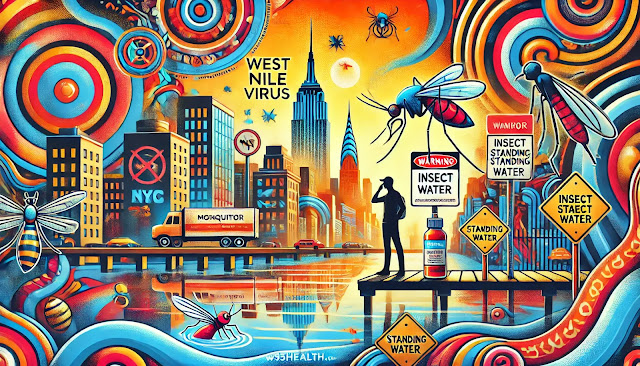Rare Mosquito-Borne Virus Detected in Nebraska
Nebraska health officials have reported the first case of a rare mosquito-borne virus, highlighting the increasing risk of vector-borne diseases in the state. The Jamestown Canyon Virus (JCV), which is transmitted through mosquito bites, has been identified in local mosquito populations, marking a significant public health concern.
Understanding Jamestown Canyon Virus
Jamestown Canyon Virus is primarily spread by mosquitoes and cycles between these insects and animal hosts, particularly deer. Humans can contract the virus through mosquito bites but do not spread it further, as they are considered “dead-end” hosts. The virus is found across the United States, with most human cases occurring in the Midwest and Northeast.
Symptoms and Risks
Most JCV infections are asymptomatic, meaning many people do not show symptoms. When symptoms do occur, they typically include fever, headache, and fatigue. In severe cases, JCV can cause neurological issues such as meningitis (inflammation of the tissues surrounding the brain and spinal cord) or encephalitis (inflammation of the brain), which can lead to more serious complications like seizures and confusion. Severe cases are more common in individuals with weakened immune systems.
Prevention Measures
As there is no vaccine or specific antiviral treatment for Jamestown Canyon Virus, prevention is crucial. The Nebraska Department of Health and Human Services recommends the following measures to reduce the risk of mosquito bites.
- Use Insect Repellent: Apply EPA-approved insect repellents containing DEET, picaridin, or oil of lemon eucalyptus.
- Wear Protective Clothing: Dress in long-sleeved shirts and long pants, especially during dawn and dusk when mosquitoes are most active.
- Install Screens: Ensure windows and doors are equipped with tight-fitting screens to prevent mosquitoes from entering homes.
- Eliminate Standing Water: Regularly drain water from items like bird baths, flower pots, and gutters, as these are common breeding grounds for mosquitoes.
The Nebraska Department of Health, along with local health departments, is actively monitoring mosquito populations and testing for JCV and other arboviruses. Public awareness campaigns are also in place to educate residents about the risks and preventive measures associated with mosquito-borne diseases.









